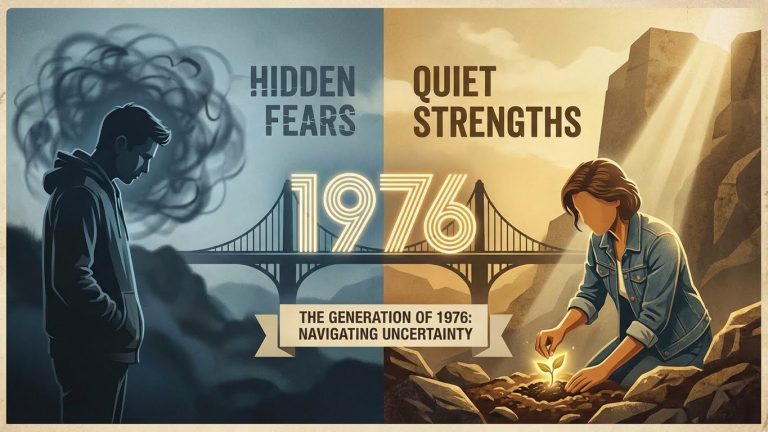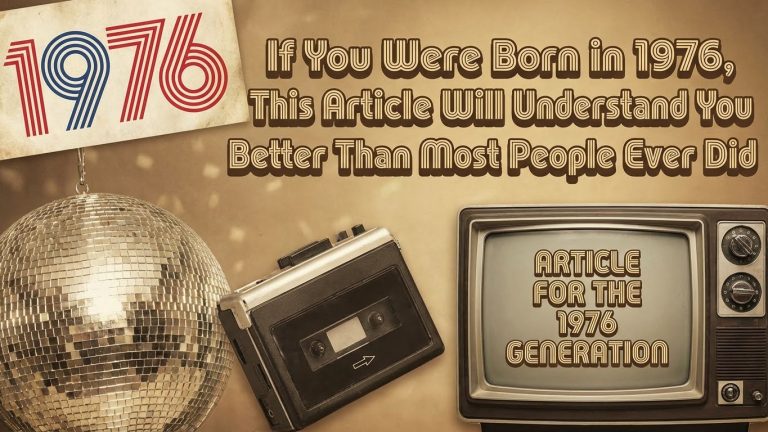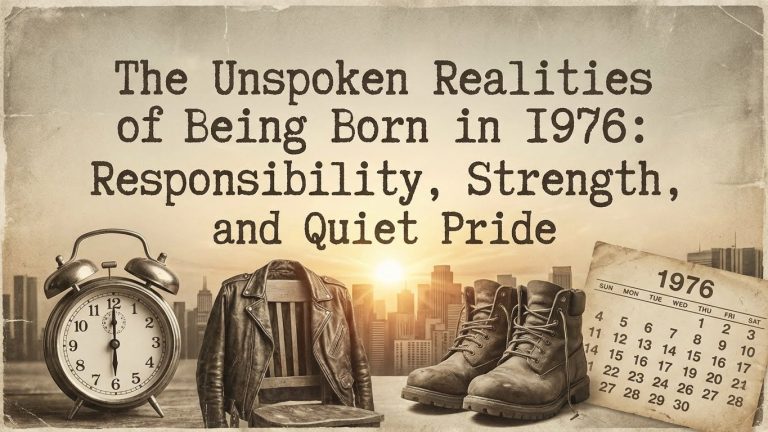Let’s be honest.
If losing weight were as easy as “eat less, move more,” the world wouldn’t be battling a global obesity epidemic.
You’ve probably heard every version of the same advice:
- Count calories
- Do more cardio
- Cut carbs
- Intermittent fast
- Go keto
- Eat clean
- Drink green juice
- Take cold showers
- Manifest your dream body with positive thinking
And yet… you’re still stuck.
Still struggling.
Still confused why your body isn’t cooperating — even though you try so hard.
Here’s the hard truth no one likes to say out loud:
Most weight loss advice doesn’t fail because you’re weak. It fails because it ignores how real humans actually work.
Let’s talk about what does work — and why it’s very different from what most fitness influencers tell you.
1. Stop Trying to Be Perfect — Aim for “Good Enough”
Perfectionism is the silent killer of all weight loss progress.
- One bad meal? “Screw it, the day is ruined.”
- One missed workout? “I’ve failed again.”
- Gained 0.5kg? “Might as well binge, it’s not working.”
That mindset creates a toxic all-or-nothing loop — which leads to burnout, guilt, and weight gain, not loss.
Instead: adopt the “80% rule.”
- Eat healthy 80% of the time.
- Let 20% be flexible, fun, human.
- Forgive yourself for being imperfect — because you are.
Consistency beats perfection. Every. Single. Time.
2. Start With What You Won’t Do
Most people start by writing a huge list of things they’ll do:
- Go to the gym every day
- Cook every meal from scratch
- Sleep 8 hours
- Meditate
- Meal prep
- Take supplements
Within a week, it collapses.
Instead, ask yourself: “What am I not willing to do — realistically?”
This helps you create a plan based on your lifestyle — not some fantasy fitness ideal.
For example:
- “I hate the gym.” → Try walking or home workouts instead.
- “I won’t give up rice.” → Keep rice, adjust portion sizes.
You’ll be more consistent with a plan that respects your reality, not one that fights it.
3. Track What You Eat (But Don’t Let It Own You)
Tracking food intake (with apps like MyFitnessPal) is one of the most effective tools for fat loss — but also the most misunderstood.
It’s not about:
- Obsessing over every gram
- Judging yourself for a slice of cake
- Becoming a human calculator
It’s about awareness.
Most people underestimate how much they eat by 500–1000 calories per day.
When you start tracking, you gain control — not through restriction, but through understanding.
But don’t track forever. Do it for 2–4 weeks, learn your patterns, then build trust in your choices.
4. Fix the Real Problem: Your Environment
Weight loss is often framed as a battle of willpower. But the truth is:
Your environment beats your willpower every time.
- If junk food is in the house, you’ll eat it.
- If your kitchen is chaotic, you’ll order takeout.
- If your friends always want dessert, you’ll say yes.
Instead of blaming yourself, redesign your environment.
- Put healthy snacks at eye level.
- Keep junk food out of sight — or out of reach.
- Prep your fridge like a hotel minibar of healthy options.
- Tell friends your goals and set boundaries.
When your surroundings make healthy choices easier, change becomes effortless.
5. Weight Loss is Boring — and That’s the Point
It’s not exciting. It’s not glamorous. It’s not a 30-day shred.
Real fat loss looks like:
- Eating similar meals often
- Walking more
- Sleeping better
- Drinking more water
- Saying “no” more often
- Tracking boring things like steps, sleep, and sugar
The people who succeed don’t find fat loss exciting — they find it automatic.
Make your plan so simple and sustainable that it feels almost boring. That’s when you know it’s working.
6. Don’t Start With Exercise. Start With Food.
Exercise is amazing — for mood, heart, strength, confidence. But when it comes to weight loss?
Nutrition is 80–90% of the game.
You can burn 300 calories running.
You can eat 300 calories in 30 seconds.
If your goal is fat loss, focus first on:
- Portion control
- Reducing liquid calories (soda, juice, fancy coffees)
- Eating more protein and fiber
- Managing emotional eating
Add movement because it feels good — not because you’re “punishing” yourself.
7. Stop Chasing Motivation. Build Identity Instead.
You won’t always be motivated. That’s guaranteed.
What matters is who you believe you are.
“I’m someone who eats clean.”
“I’m someone who prioritizes my health.”
“I’m someone who moves every day.”
When you build an identity, your choices align automatically — because they feel natural, not forced.
Small wins build that identity.
- 10-minute walk? ✅
- Skipped soda? ✅
- Chose grilled over fried? ✅
Each tiny action is a vote for the person you want to become.
8. Emotional Eating Isn’t About Food — It’s About Escape
Most people don’t binge because they’re hungry. They binge because they’re bored, lonely, sad, angry, tired, or overwhelmed.
Weight loss won’t stick until you find new coping tools that aren’t food.
Try this:
- Breathe deeply for 1 minute
- Journal what you’re feeling
- Go for a short walk
- Call someone
- Say out loud: “I am not hungry. I am feeling _______.”
It sounds simple. It is simple. But it’s also life-changing.
9. Sleep Like It’s a Weight Loss Tool (Because It Is)
If you sleep less than 6 hours per night:
- Your cravings go up
- Your metabolism slows down
- Your willpower tanks
- Your body holds onto fat
- You feel hungrier even if you’re not
Sleep is not optional — it’s a secret weapon.
No supplement or gym routine can fix what sleep deprivation ruins.
Aim for 7–9 hours.
Yes, every night.
10. Be Patient — And Be Kind
Fat loss is not linear.
Some weeks you’ll lose.
Some weeks you’ll stall.
Some weeks you’ll gain.
That doesn’t mean it’s not working. It just means you’re human.
Your body is not a machine. It’s a living, adapting organism — learning to trust you again.
Be patient with it.
Be kind to it.
Feed it well, move it often, speak to it with love.
And slowly, it will let go of what it doesn’t need — including the weight.
Final Thought:
Losing weight is not just about food and exercise.
It’s about unlearning years of toxic habits, beliefs, and patterns — and learning to show up for yourself every day, even when it’s hard.
So no, you’re not lazy.
You’re not broken.
You’re not hopeless.
You just haven’t had a plan built for you — not for Instagram, not for a magazine headline, but for your actual, beautiful, imperfect, real life.
And once you have that?
You don’t just lose weight.
You reclaim your power.











